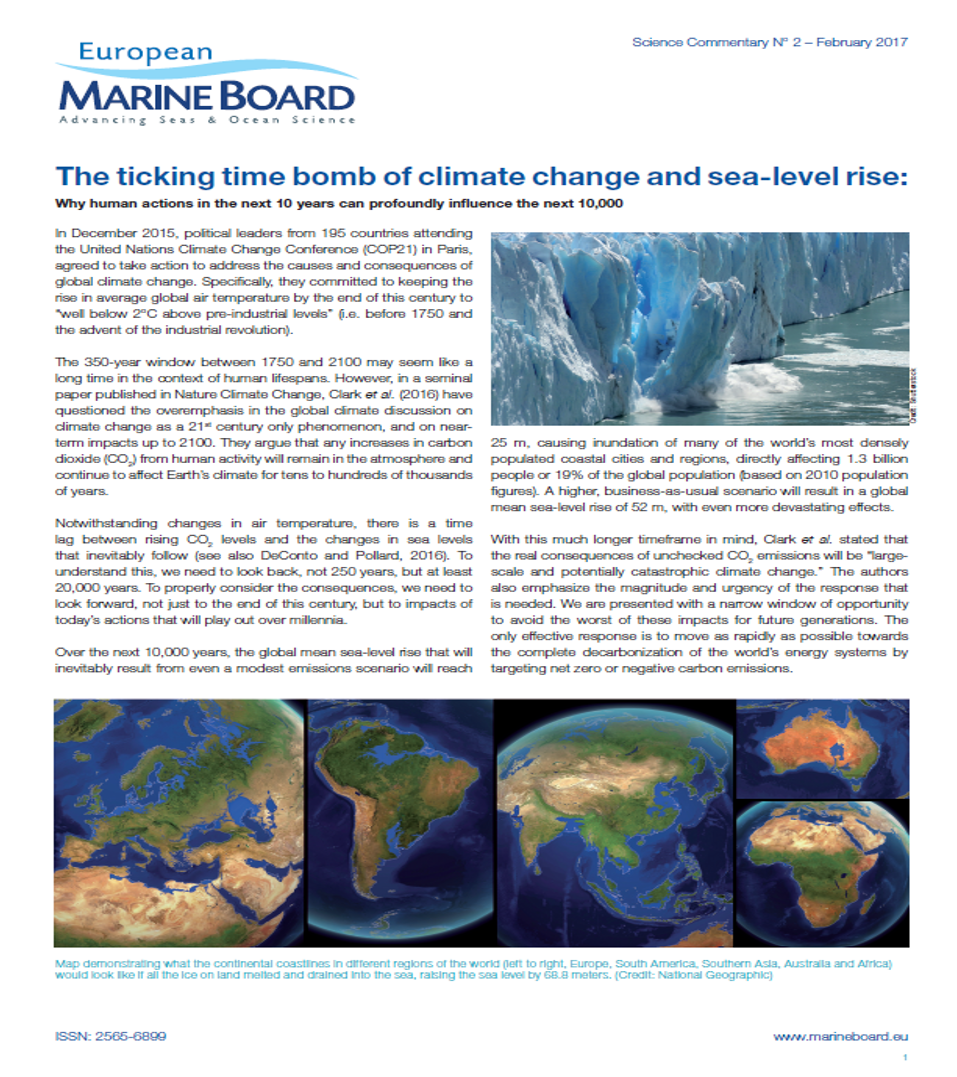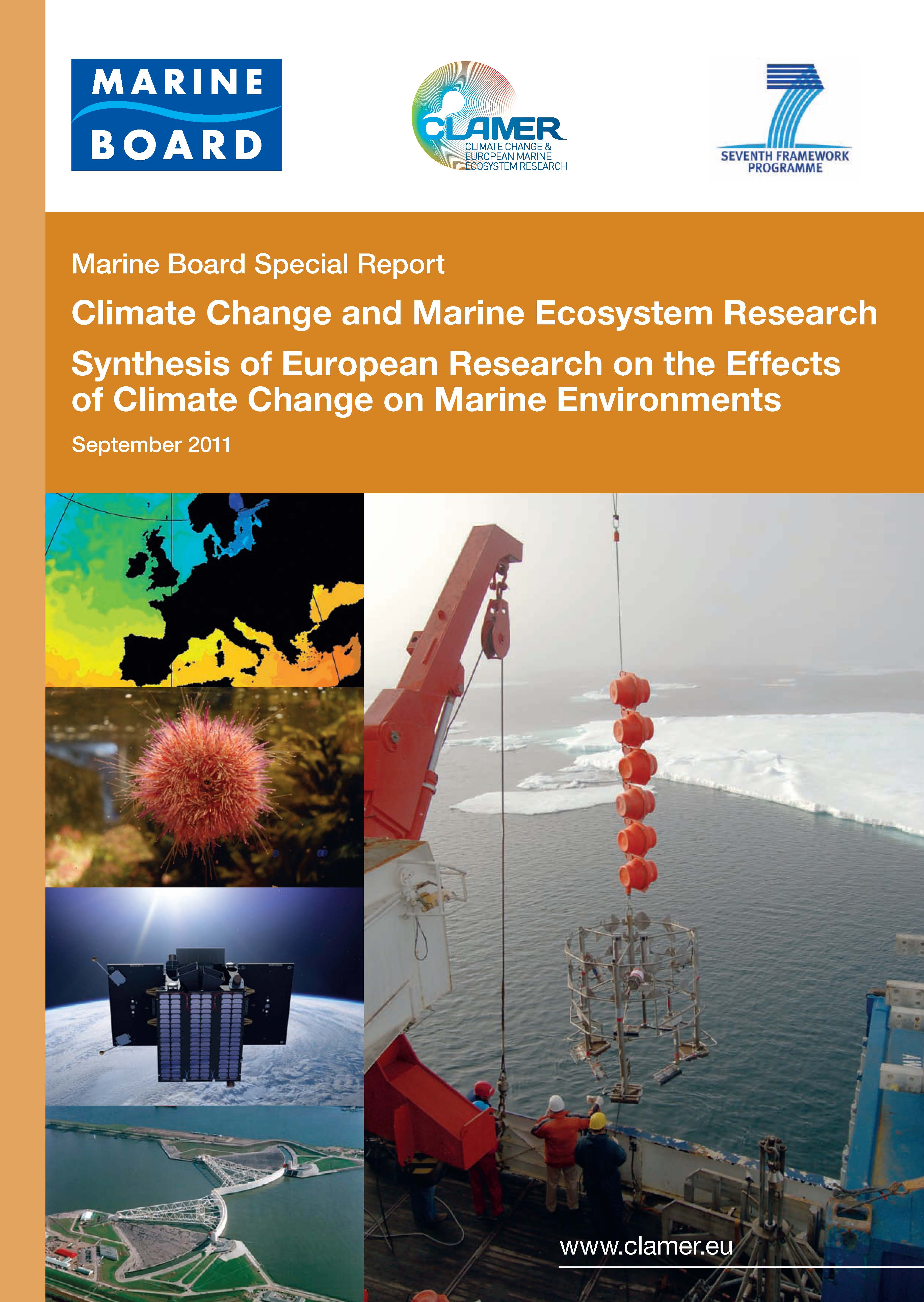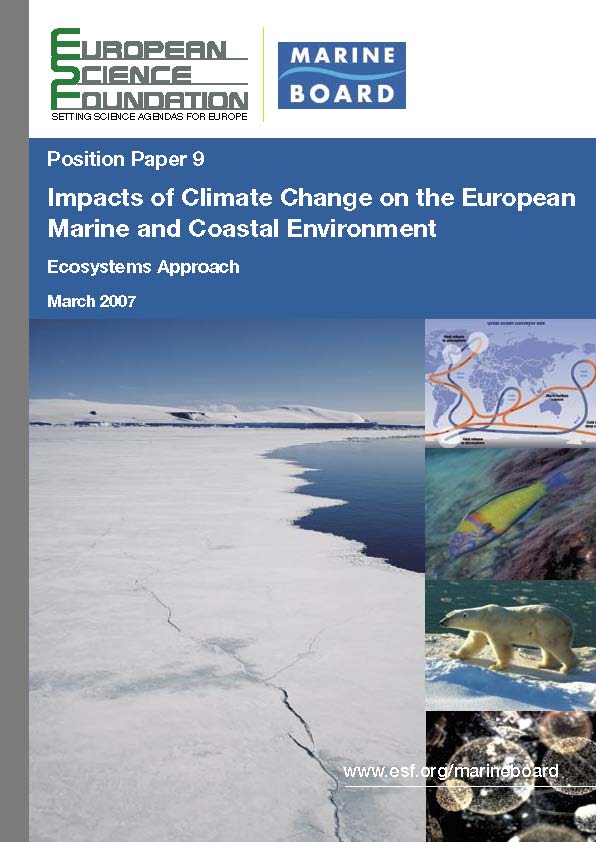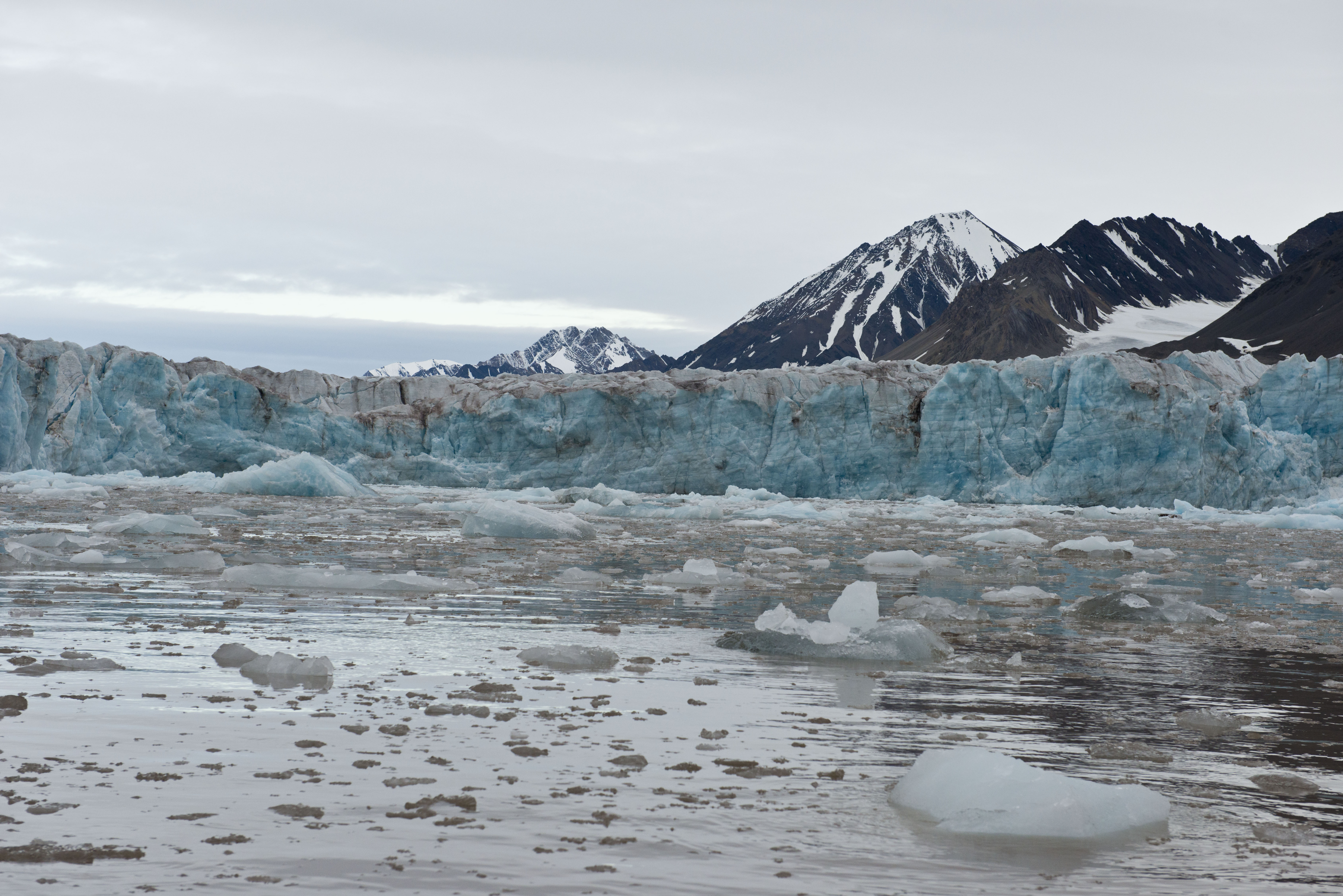Output
 Science Commentary 2, The Ticking Time Bomb of Climate Change (March 2017)
Science Commentary 2, The Ticking Time Bomb of Climate Change (March 2017)
News article and news release for the publication (March 2017)
News re-release for the publication (March 2018)
Impact report for the climate change publication (September 2019)
 Science Commentary 1, Getting Ready for an Ice-free Arctic (April 2013)
Science Commentary 1, Getting Ready for an Ice-free Arctic (April 2013)
 Special Report, Climate Change and Marine Ecosystem Research (September 2011)
Special Report, Climate Change and Marine Ecosystem Research (September 2011)
 Position Paper 9, Impacts of Climate Change on the European Marine and Coastal Environment (March 2007)
Position Paper 9, Impacts of Climate Change on the European Marine and Coastal Environment (March 2007)
Working Group (2005-2007)
Background
 Climate for the 21st century is expected to be largely different from the present and the recent past, although there are good indications that during the Pleistocene CO2 and temperatures have been higher during certain periods than today. Temperatures are rising, 1998 has broken the record of the last millennium and 2002 arrived just behind. Clearly our climate is changing rapidly and climate change will impact regional sea environments in different ways.
Climate for the 21st century is expected to be largely different from the present and the recent past, although there are good indications that during the Pleistocene CO2 and temperatures have been higher during certain periods than today. Temperatures are rising, 1998 has broken the record of the last millennium and 2002 arrived just behind. Clearly our climate is changing rapidly and climate change will impact regional sea environments in different ways.
Various European Institutions (e.g. UK Hadley Centre) have prepared global and regional climate change predictions which suggest a range of impacts including increased storminess, increased coastal erosion, changes in the biography of commercial species. Both positive and negative impacts (from a human perspective) have been identified.
Objectives
The object of this Working Group was to summarize predicted climate change impact scenarios for Europe’s Regional Seas: Arctic, Baltic, Atlantic, Mediterranean and Black Sea, and identify future marine monitoring and R&D needs. In particular:
- Rising the awareness of European citizens and society at large of the effects of climate change on the marine and environment and associated socio-economic consequences
- Drawing attention to the gap between what is known through research and what policy makers and the public know to ensure that appropriate and sustainable adaption strategies are developed and implemented
- Understanding the impacts of climate change on the oceans
Related activities
- 5-9 June 2017: UN Conference to Support the Implementation of SDG14, New York
- 5-7 April 2017: Climateurope Festival, Valencia
- 14-15 March 2017: 19th International Conference on Biodiversity, Ecology and Conservation of Marine Ecosystems, London
- 3 March 2017: VLIZ Marine Scientists Day, Bruges
- 27 February 2017: Fifth International Conference on Climate Services (ICCS5), Cape Town
- 22-24 February 2017: World Ocean Summit, Bali
- 16 February 2017: 1st International Conference on Climate Change 2017: Facing the challenge beyond COP21, Sri Lanka
- 15-16 February 2017: Preparatory Meeting for UN Conference on SDG 14, New York
- 6-9 December 2016: Scoping of the IPCC Special Report on “Climate change and oceans and the cryosphere”, Monte Carlo, Monaco
- 5 December 2016: Research and Innovation for achieving the Sustainable Development Goals in the European Context: Current State of Play and Ways Forward, Brussels
- Arctic Science summit (13 -19 April 2013, Kraków, Poland) – launch of the Science Commentary “Getting ready for an Ice-free Arctic”. The commentary calls or multi-annual and multi-sectoral investment to increase Europe’s capacity to observe and study the Arctic Ocean ecosystem before the region is transformed by rapid environmental change and commercial exploitation. The call for action represents a common vision approved by the 35 Marine Board Member Organizations and is strongly supported by the European Polar Board (EPB).
Meetings
- 27–28 September 2005, Brussels, Belgium
- 24 –25 January 2006, Brussels, Belgium
- 27–29 March 2006, Brussels, Belgium
Members
Chair: Catharina J.M. Philippart, Netherlands Institute for Sea Research, The Netherlands
Working Group members:
Ricardo Anadón, Dep. de Biología de Organismos y Sis¬temas, Universidad de Oviedo, Spain
Roberto Danovaro, Dipartimento di Scienze del Mare, Italy
Joachim W. Dippner, Baltic Sea Research Institute, Germany
Kenneth F. Drinkwater, Institute of Marine Research, Norway
Stephen J. Hawkins, Marine Biological Association of the UK
Geoffrey O’Sullivan, Marine Institute, Ireland
Temel Oguz, Institute of Marine Sciences, Turkey
Philip C. Reid, SAHFOS, United Kingdom
Contact at European Marine Board Secretariat: Email